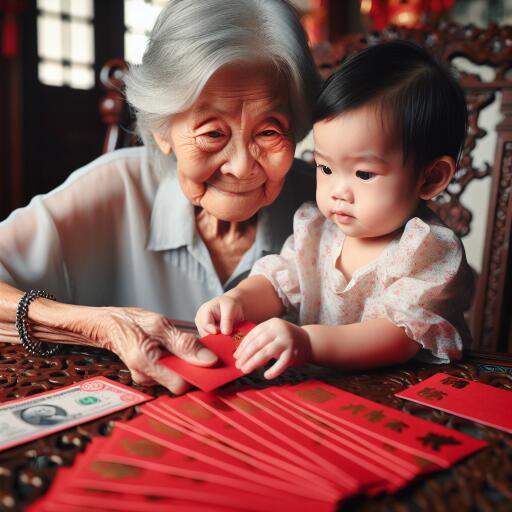Tradition of lucky money a financial strain on elderly – China Daily
In the midst of Spring Festival celebrations, the tradition of giving lucky money, encapsulated in red envelopes, has become a financial burden for some of China’s elderly population.
The festive period, which began on February 10th, sees retirees struggling financially as they adhere to the tradition of handing out ‘yasuiqian’ – money intended to suppress bad luck – to young members of their family. This custom has seen a transformation from modest sums to substantial amounts that are causing concern among the elderly.
Reports highlight that in prosperous regions like Zhejiang province, the amount given can reach up to 3,000 yuan ($420). In contrast, rural areas in less affluent provinces like Anhui see a standard gift of 200 yuan during the festival season, as urban dwellers return to celebrate with their grandparents.
Li Kun, a retiree from Hefei, Anhui’s provincial capital, shared his experience of distributing over 10 red envelopes, each containing a 100-yuan banknote, equalling his monthly pension. The distribution forces Li to dip into his savings, a stark change from decades ago when smaller amounts were customary and did not financially strain the givers.
The pressure to maintain appearances and compete financially has increasingly put older adults in difficult positions, especially in rural areas known for their generosity and hospitality.
In light of these concerns, authorities in Fuyang, a rural area in Anhui province, announced plans to introduce a cap on the amount that can be given in red envelopes. This initiative aims to cultivate a healthy attitude towards this tradition and is part of a broader national effort to curtail unnecessary spending among financially vulnerable rural residents.
Wang Yamin, a village official near Beijing, notes his escalating expenditure on ‘yasuiqian’ due to the expansion of his family and social circle. This year, he allocated 4,000 yuan for red envelopes, varying the amount based on his relationship with the recipients’ families. Wang reminisces about receiving 1-yuan envelopes as a child but acknowledges the reciprocal nature of the tradition today, which eases the financial impact somewhat.
Conversely, Wang Chengfang, a retiree from Jining, Shandong province, expresses concern over the trend of giving large sums to children. The expectation to reciprocate such generosity makes him hesitant to involve his granddaughter in these exchanges, fearing the establishment of a ‘relationship debt’ that must be repaid in the future.
The practice of exchanging red envelopes, while rooted in cultural tradition, is being reevaluated in light of its financial implications for China’s elderly population. As communities and authorities seek to balance tradition with economic realities, the hope is to preserve the essence of this practice without imposing undue strain on any participants.
